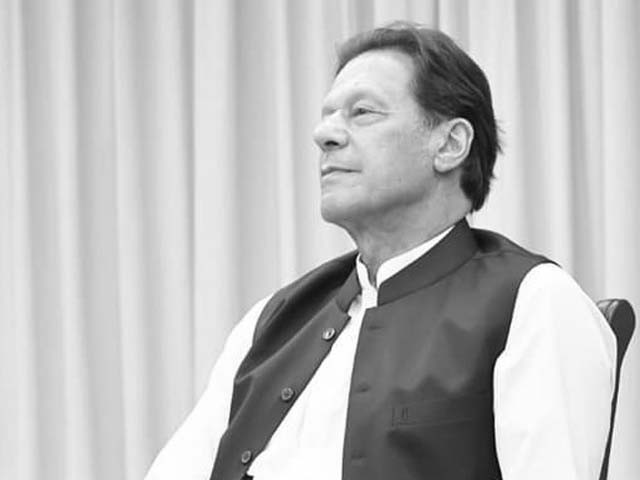In my article published a few days ago, I tried to deconstruct Imran Khan’s baseless claim that the United States (US) was trying to dislodge him from power for pursuing a so-called “independent” foreign policy. I argued that while it is true that historically the US has been involved in regime changes across the globe (particularly during the Cold War), and was also interested in Pakistani politics (particularly during both the Afghan wars), right now America’s focus is elsewhere. Moreover, even if America was interested in Pakistan, it did not need to orchestrate a regime change since for the past three decades, it has directly dealt with the Pakistani establishment.
At the time, I did not know (in fact no one did) that the purpose of weaving this fallacious narrative was not merely to paint the opposition in a bad light but to create a justification for Imran’s subsequent actions. On April 3, 2022, Deputy Speaker of the National Assembly Qasim Suri, in blatant violation of the democratic norms as well as the Constitution, dismissed the no-confidence motion tabled against the prime minister. The National Assembly was then dissolved by President Arif Alvi on the advice of Imran.
The matter then went to the Supreme Court and, for the next five days, Pakistan was on edge. Before the ruling, it was felt that perhaps the apex court would allow fresh elections to go ahead despite declaring the deputy speaker’s ruling illegal. However, the judgement of the Supreme Court dealt a hammer blow to the expectations of the Pakistan Tehreek-e-Insaf (PTI) as it declared the dissolution of the National Assembly to be unconstitutional.
Perhaps cognisant of the PTI’s dubious intentions, the court took additional precautions by legally binding the speaker to conduct voting on the no-confidence motion on April 9, 2022. In light of this, it was felt that finally Imran and his party would come to their senses and opt for an honourable exit. However, regrettably, despite clear court orders, PTI kept on postponing the voting. The situation deteriorated to such as extent that the Supreme Court decided to open its doors at 12am in order to ensure the implementation of its decision. At the same time, there were also reports of the Islamabad High Court opening in order to prevent Imran from taking an extreme and desperate step by attempting to remove Chief of Army Staff (COAS) General Qamar Javed Bajwa. It was only after these extreme developments that the PM finally decided to relinquish, eventually culminating in the victory of the no-confidence motion.
All that could have ended smoothly and gracefully instead finished in such an ignominious and unpleasant manner. As these developments were unfolding, political uncertainty was increasing, as was the possibility of direct military intervention. In fact, Imran and PTI, due to their irresponsible behaviour, were perhaps deliberately inviting such a scenario. During this entire crisis, Imran proved himself to be a thoroughly irresponsible leader who wanted to desperately cling to power at all costs, or to at least depart completely on his terms. In doing so, he also showed blatant disregard for democracy, all the while paradoxically claiming to “bat till the last ball for Pakistan”.
Why did Imran Khan do all this? But more importantly, why was he able to do all this?
The answer to the first question lies in a combination of his personality and his immediate objectives, for which fresh elections were essential. I would argue that Imran suffers from what is known as narcissist personality disorder, and consequently also has a Messiah complex. In fact, there are several clips which show how many times he uses the word “me” during his speeches. Additionally, his constant boasting that he knows more than anyone else about most issues and countries reveals his narcissistic and egotistical tendencies. Such people have little regard for others and are exclusively focused on themselves and their own intentions.
However, while his personality type and desired objectives can explain the rationale behind his decisions, they do not fully explain his willingness and ability to act on them. In order to explore this, we need to look at his support base.
I have often heard that Imran Khan is merely an establishment creation and his rise to power is simply their doing. While it is true that the so-called establishment helped engineer Imran’s spectacular rise to power after 2011, his real strength now are his supporters who are ready to defend anything he does. In some ways, PTI is more like a cult with quasi fascist undertones rather than a political party. So when Imran decided to take these reckless and politically immature decisions, he knew that his supporters would not only tolerate them but would in fact get more energised and zealous in their support.
For example, when the deputy speaker dismissed the no-confidence motion, a step which was both dangerous and cowardly, Imran’s supporters interpreted it to be a ‘brave masterstroke’. Social media was set ablaze by PTI supporters, with phrases like “behind you skipper” trending of Twitter during the entire time the matter was in the Supreme Court. On April 9, 2022, when the speaker engaged in yet another blatant disregard of democratic norms by delaying the no-confidence motion, PTI supporters ecstatically lauded him for his ‘bravery’ and loyalty to Imran, which for them was more important than his moral and legal duty to adhere to the constitutional requirements. They think their leader does not bow down to pressure, overlooking the irony that Imran actually sacrificed Usman Buzdar in an attempt to merely gain four votes in the centre.
Many of Imran Khan’s supporters come from the urban middle class, which is numerically less but has disproportionately high representation in the corporate sector, media, as well as the public sector. This is the class which has been most exposed to the way Pakistani nationalism has been cultivated and is therefore quite prone to accept the PTI narrative that Imran is being removed by the US because of his pursuit of an independent foreign policy, despite evidence to the contrary.
His supporters are by and large obsessed with corruption, and think Imran is the only honest leader in the country and should therefore continue to rule, even if through nondemocratic means. They see all other political personalities as ‘looters and plunderers’ who are currently indulging in treason. Of course, their belief has been further amplified by Imran positing himself as the only ‘honest and sincere’ person in Pakistani politics. Going forward, it is this manic devotion which will unfortunately ensure that there is little chance of Imran Khan giving up his extremely divisive, polarising and dangerous rhetoric.



COMMENTS
Comments are moderated and generally will be posted if they are on-topic and not abusive.
For more information, please see our Comments FAQ